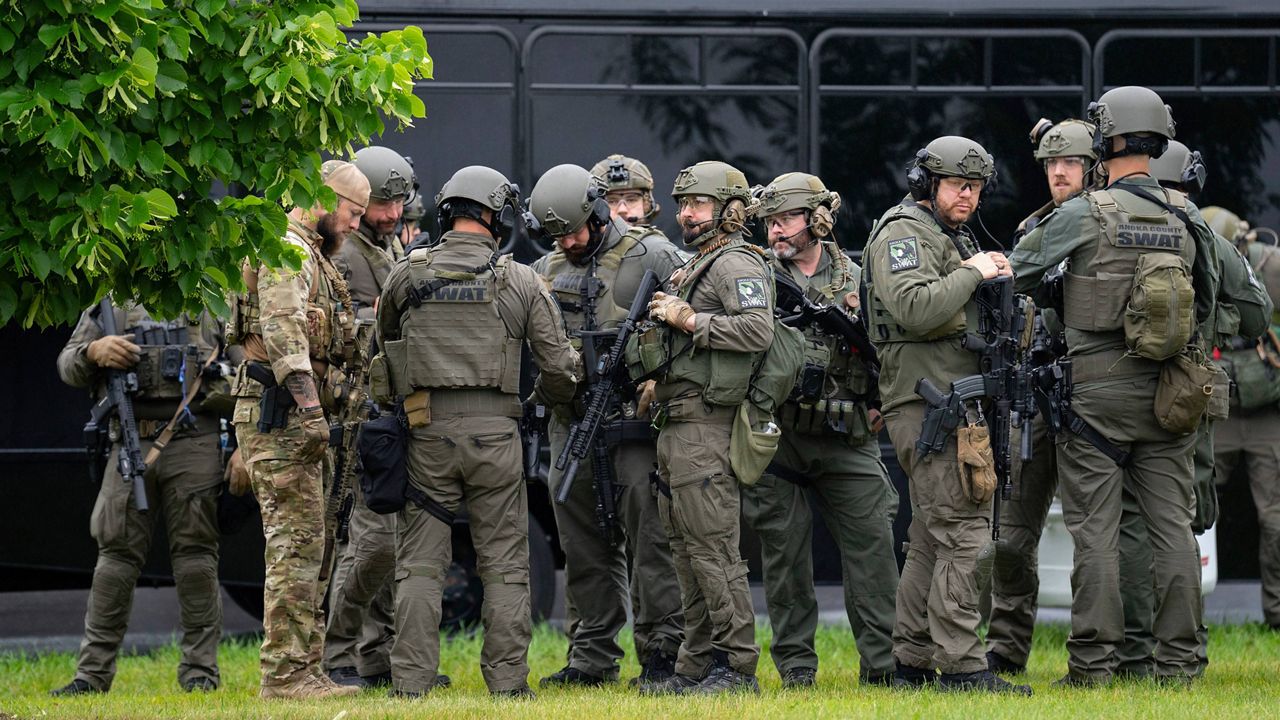CINCINNATI — With changes in tariffs each day, small businesses are continually being impacted. And for toy stores, the majority of toys are made overseas. The owner of one toy store shares how tariffs are impacting her business.
A walk through the aisles of Flying Pig Toys takes you down memory lane.
For owner Marci Harman, the shop has become a passion.
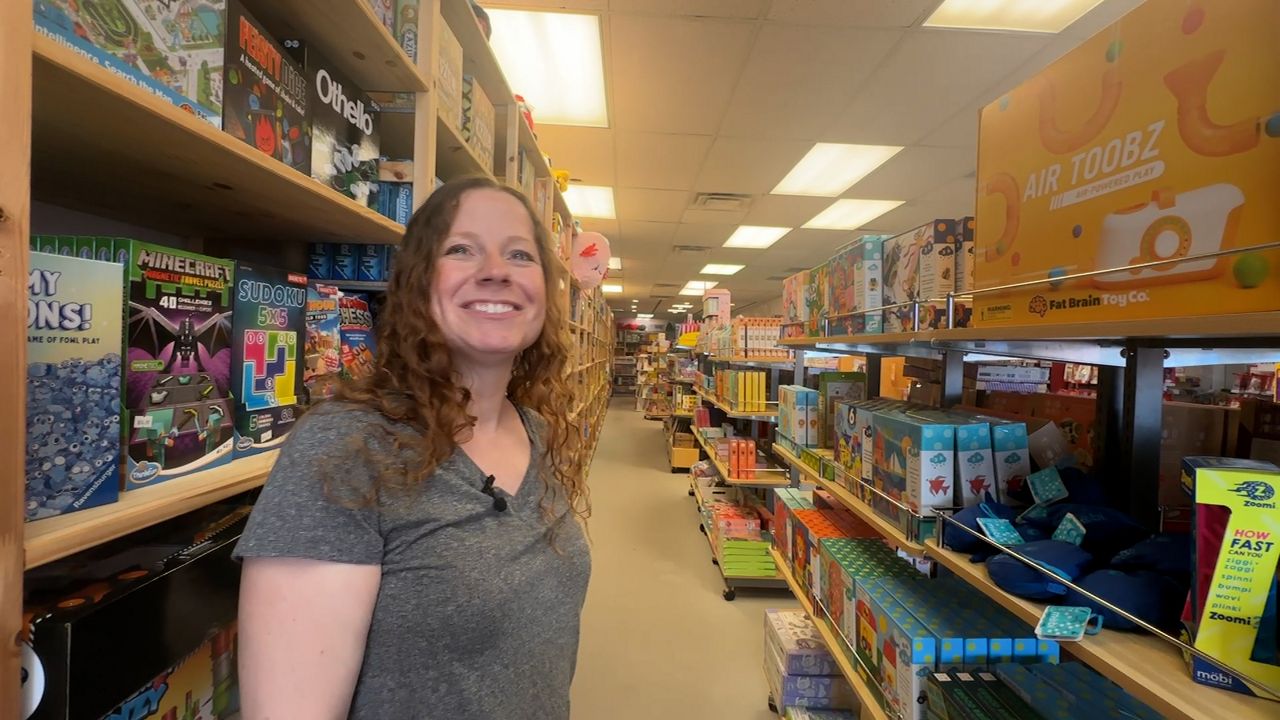
“I don’t want to be like every other toy store," she said. "I want to have unique things, I want to have quality things.”
Which is why she brings in toys from all over the world, like Germany, Poland and Spain.
But having toys made across the globe is getting more expensive, due to ongoing tariffs.
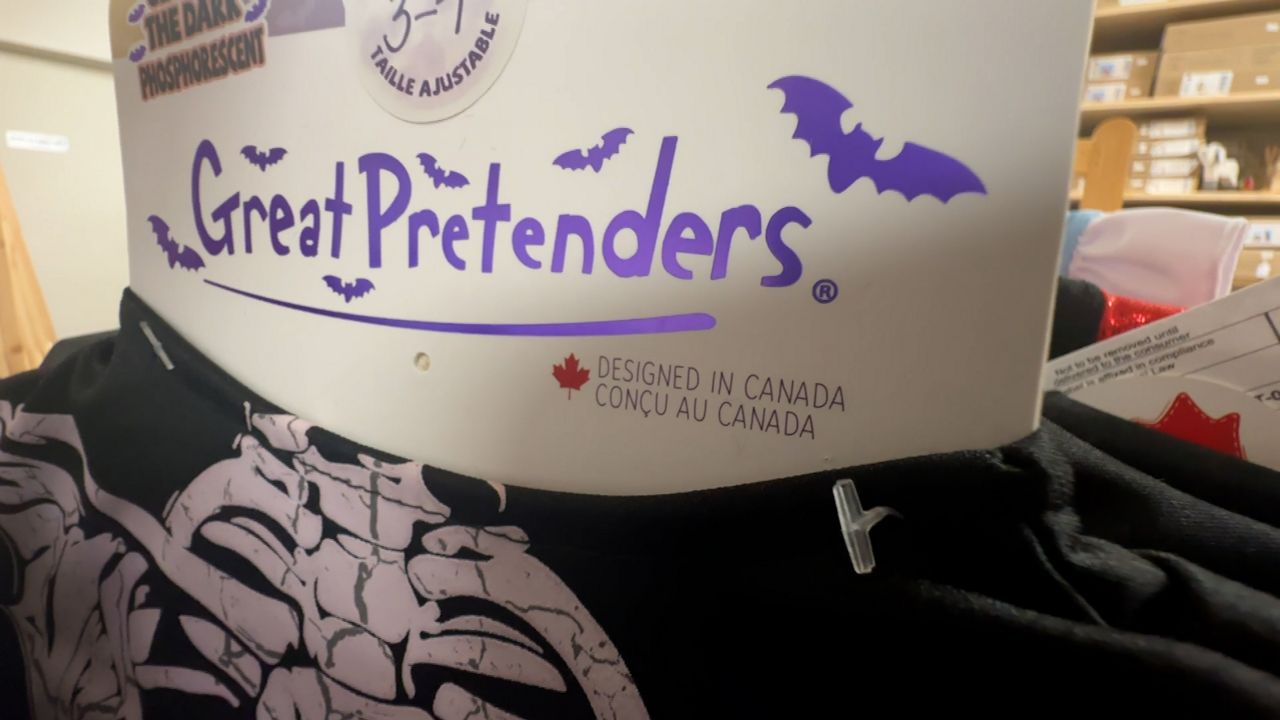
“Everyday it’s something new, saying we’re going to hold our prices or we’re passing on a 15% tariff or 25% tariff charge to the small businesses or we’re just increasing prices," Harman said.
Which means she’s stocked up before those tariff prices kicked in. The stacked boxes in the back are indication of a hefty bill she’s had to pay before really needing the product.
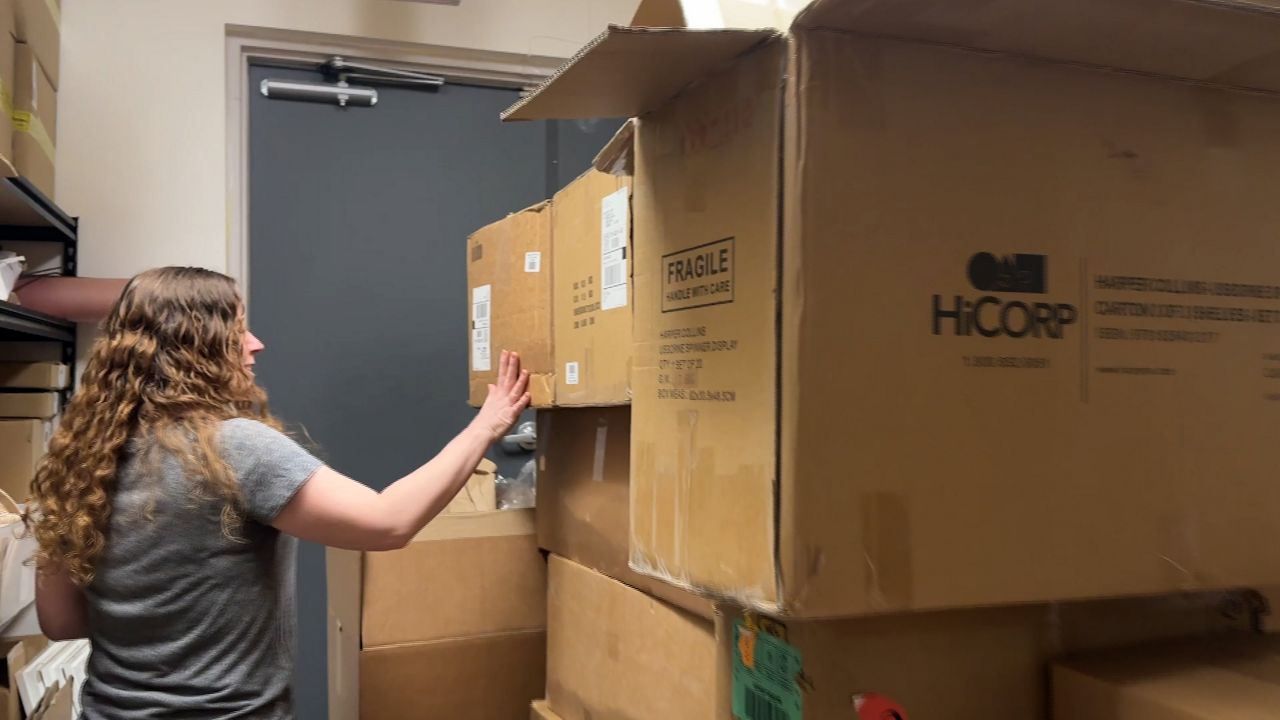
“It’s incredibly stressful, yes," she said. "Because we want to be mindful about what we’re bringing in like I said and we want to not stress our customers out with higher prices because we know everybody’s stretched thin right now.”
Harman isn’t the only business owner either stocking up or slowing down. Gary Painter, a professor at the Lindner College of Business at the University of Cincinnati, said when big economic shifts happen, small businesses are the ones that feel it the most. And it makes it difficult for them to navigate.
“They’re in a situation where this tariff regime which again has these two components of higher cost and or unknown tariff rates, they’re kind of stuck not knowing what is the best path forward," Painter, who is also the academic director of the real estate center at UC, said.
While Harman’s hopeful that some of the tariffs may eventually be rescinded, she’s also worried since this time of year is typically slow for the shop.
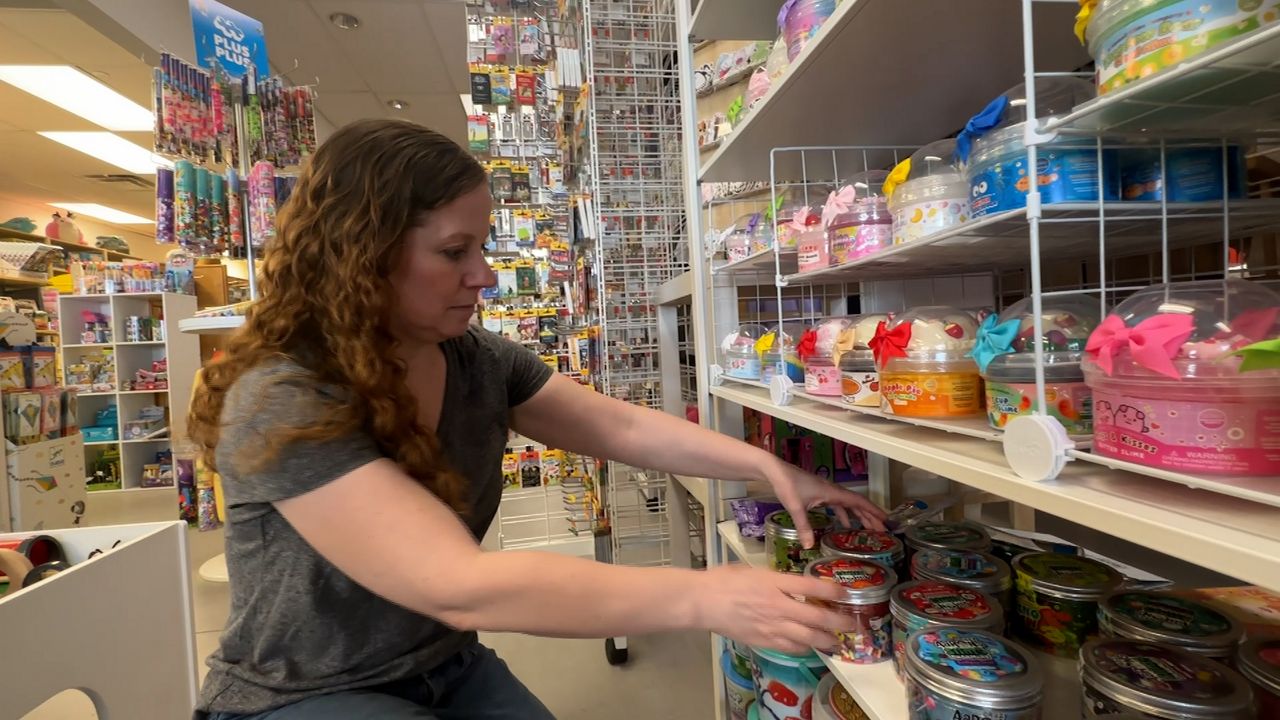
“This is very hard for small businesses because we are having to make some tough decisions," Harman said. "We’re just all trying to stay afloat.”
But she’s reminded by customers of the importance of having a local toy store and hopes they can help her navigate these tariff changes.
“They tell me how much they appreciate us being here and bringing these products in, because you can’t find a lot of these at the big box stores," she said. "So we’re just hopeful that they will continue to come and continue to support us and make sure that we are able to survive this too.”

